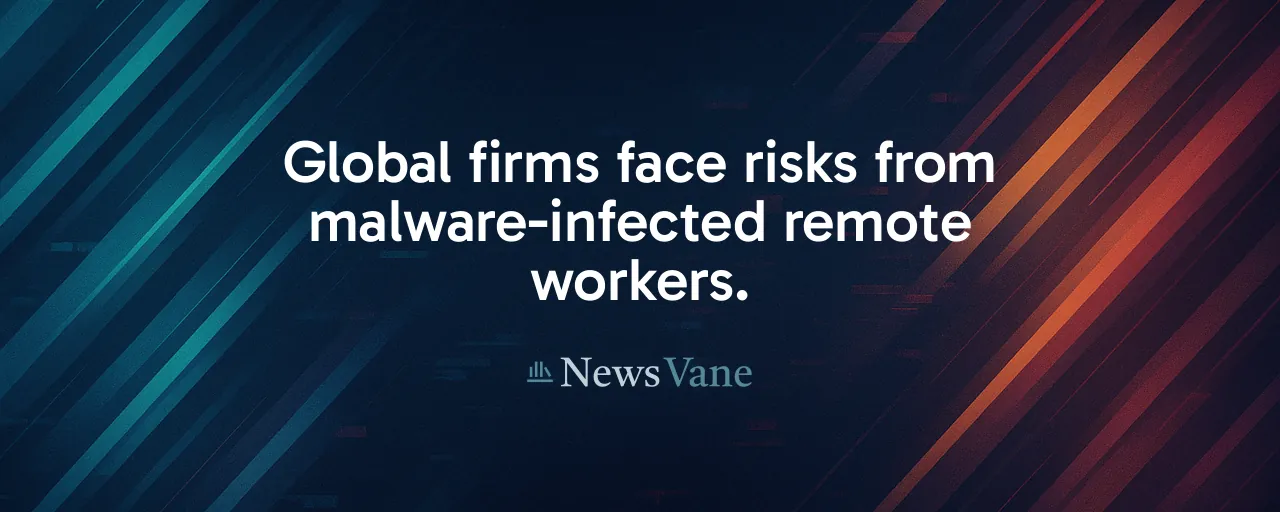A Hidden Workforce Exposed
A recent U.S. Treasury announcement revealed a sophisticated scheme where North Korean IT workers, armed with stolen American identities, infiltrated global companies. These workers, often posing as U.S. citizens, secured remote tech jobs to funnel money to Pyongyang's weapons programs. The July 8, 2025, sanctions targeted Song Kum Hyok, a cyber operative, and a Russia-based network enabling this deception. This news underscores a broader issue: how nations exploit digital loopholes to evade international restrictions.
The problem extends beyond one individual or network. Thousands of North Korean IT workers, primarily based in China and Russia, operate under false personas. They target high-paying tech and cryptocurrency firms, generating significant revenue for the Democratic People's Republic of Korea (DPRK). Some even plant malware, turning corporate networks into tools for espionage. This tactic highlights a pressing challenge for global businesses and regulators alike.
The Treasury's action, led by its Office of Foreign Assets Control (OFAC), builds on years of efforts to disrupt these schemes. Since 2016, the U.S. and United Nations have targeted DPRK cyber groups like the Lazarus Group and Andariel. Yet, the persistence of these operations raises questions about how to effectively close these digital gaps while balancing economic and security priorities.
The Mechanics of Deception
North Korean IT workers rely on a web of falsified documents, proxy accounts, and stolen personal data to secure contracts. Research from blockchain forensics firms shows these workers often target freelance platforms, using VPNs and deepfake technology to mask their origins. In 2022 and 2023, Song Kum Hyok orchestrated schemes where foreign hires posed as Americans, splitting profits while channeling funds to the DPRK.
The revenue is substantial. Estimates suggest the DPRK maintains 6,000 to 7,000 cyber personnel globally, with IT workers contributing millions annually to weapons programs. A 2022 cryptocurrency heist tied to the Axie Infinity breach netted $600 million alone, though 2023 saw a 70 percent drop in such thefts due to tighter enforcement. These funds, laundered through Russian exchanges and mixers, directly support ballistic missile and nuclear ambitions.
Companies, often unaware of the deception, face significant risks. Malware introduced by these workers can disrupt operations or leak sensitive data. The 2014 Sony hack and 2016 Bangladesh Bank heist, both linked to DPRK groups, show the potential for escalation. This reality presses firms to rethink how they verify remote hires in a borderless digital economy.
Sanctions as a Partial Fix
The U.S. response centers on sanctions, freezing assets and barring dealings with designated individuals like Song and entities like Russia's Asatryan LLC. These measures, authorized under Executive Orders and U.N. Resolution 2270, aim to choke off DPRK revenue. Historical data supports their impact: targeted sanctions disrupted the Axie Infinity laundering chain, and 2023 saw reduced crypto thefts after intensified enforcement.
However, sanctions alone face limits. Think-tank studies indicate the DPRK adapts swiftly, creating new front companies or shifting to illicit trade like gold. Compliance costs also burden global firms, particularly smaller platforms lacking robust verification systems. The extraterritorial reach of secondary sanctions, targeting Russian and Chinese facilitators, sparks diplomatic tensions, complicating multilateral cooperation.
A broader approach is emerging. Experts advocate combining sanctions with real-time blockchain analytics and standardized identity checks for remote workers. The 2024 Maui ransomware indictments and January 2025 Laos network designations show law enforcement's growing role. Yet, closing these gaps requires global coordination, as unilateral measures often push the problem elsewhere.
Balancing Security and Fairness
The pursuit of DPRK revenue streams raises ethical questions. While sanctions target regime elites, they can indirectly harm ordinary North Koreans reliant on overseas wages. Studies highlight how broad economic restrictions exacerbate food and medical shortages, affecting civilians more than leaders. This tension underscores the need for precise measures that spare unintended victims.
Global tech firms also face dilemmas. Stricter hiring protocols could disadvantage legitimate freelancers, particularly from developing nations. Industry leaders are exploring ethical vetting tools, like AI-driven identity verification, to balance security with inclusivity. Such innovations, if adopted widely, could set new standards for remote work in a globalized economy.
Multilateral efforts offer another avenue. Historical progress, like the 2018 Singapore summit, tied sanctions relief to denuclearization talks. A proposed U.S.-China-Russia working group on illicit cyber finance could align enforcement while addressing humanitarian concerns. These steps, though complex, signal a shift toward cooperative solutions.
Charting the Next Steps
The Treasury's latest sanctions highlight a persistent challenge: North Korea's ability to exploit digital systems for financial gain. The evidence is clear: fake identities, malware, and crypto heists fuel a regime's dangerous ambitions. Yet, the response requires more than asset freezes. It demands global cooperation, smarter technology, and a commitment to minimizing harm to innocents.
Progress is possible. Standardized verification protocols, stronger blockchain tracking, and diplomatic engagement can disrupt these schemes while fostering stability. The drop in 2023 crypto thefts proves enforcement can work when paired with innovation. Companies, governments, and international bodies must act in concert to close these loopholes.
The stakes are high. A world where rogue actors exploit digital trust undermines security and fairness. By prioritizing precision, collaboration, and ethical solutions, the global community can curb this threat while building a more resilient digital economy. The path forward lies in action, not reaction.
